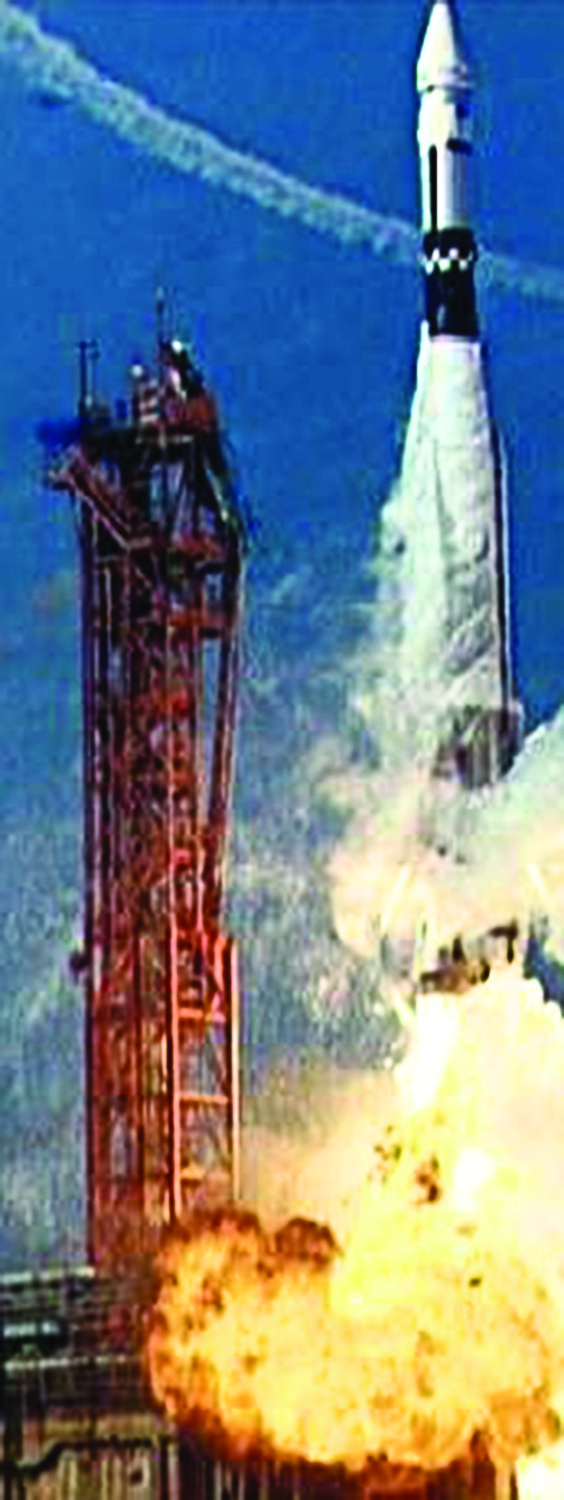A moment in history unlike any other
“In the beginning, God created the heaven and the Earth. And the Earth was without form and void and darkness was upon the face of the deep and the spirit of God moved upon the face of the waters. And God said, ‘Let there be light,’ and there was light.’ ”
“And God called the light Day and the darkness He called Night. And the evening and the morning were the first day. And God said, ‘Let there be a firmament in the midst of the water. And let it divide the waters from the waters.’ ”
– Apollo 8 astronauts Bill Anders and Jim Lovell, respectively, reading from Genesis while orbiting the moon on Christmas Eve 1968.
Fifty years ago this month, three astronauts made history, and lifted the spirits of humanity, with an unforgettable live TV broadcast from the moon.
Veteran astronauts Jim Lovell and Cmdr. Frank Borman, and rookie astronaut Bill Anders, in 1968 not only became the first humans to orbit the moon – nearly seven months before Apollo 11’s Neil Armstrong and Edwin “Buzz” Aldrin’s historic lunar landing – but they also accomplished something that a half-century later, in these politically correct times, would be unlikely: They ended their Christmas Eve telecast by reading the opening verses from the Book of Genesis, which is in both Judaism’s Torah and Christianity’s Old Testament.
The bold move led to an unsuccessful lawsuit against NASA, filed by noted atheist Madalyn Murray O’Hair, who not only challenged the Bible readings, but also added a complaint that NASA had allegedly withheld from the public that Armstrong was an atheist.
Although the U.S. Supreme Court tossed O’Hair’s lawsuit, author James R. Hansen, in the 2018 edition of his biography on Armstrong, “First Man,” said NASA officials were sufficiently bothered by O’Hair’s suit to advise Armstrong and Aldrin against saying anything with religious overtones after their historic landing. (Aldrin did recite Communion prayers while on the moon, but did so in private, Hansen wrote in “First Man.”)
The intrepid crew of Apollo 8, however, had no such worries, which allowed TV viewers worldwide to be inspired by the astronauts’ stirring readings from Genesis while our screens showed us for the first time what our planet looks like from 250,000 miles away.
Anyone 60 or older probably still vividly remembers that telecast and the lunar orbit itself, which was the result of the United States’ and the Soviet Union’s race to the moon during the height of the Cold War. That heated race led to an uncharacteristic move by NASA to take a huge gamble that the Apollo hardware, some of it untested on manned flights, would work well enough for a successful historic first trip to the moon and back.
The how and why behind that decision is one of many stories related in the extremely informative book “Apollo 8,” by Jeffrey Kluger.
The bottom line, Kluger explains in “Apollo 8,” is that America’s space agency decided in August 1968 to send three men to orbit the moon even before the LEM (lunar module) needed for a moon landing was ready or flight-tested. That decision meant that in the event of a major malfunction on the command module, the trio would have no way of getting home as the lunar lander wasn’t part of the astronauts’ moon ship.
To understand what this meant, it’s important to recall what happened on Apollo 13, in April 1970: after an explosion en route to the moon left the command module with just enough power and oxygen for re-entry into the Earth’s atmosphere, astronauts Lovell, Fred Haise and John “Jack” Swigert were forced to travel most of the quarter-million miles home in the lunar module, before jettisoning it about an hour before re-entry.
Fortunately, Apollo 8 had no such issues, but NASA’s approval of the moon-orbiting mission was even more remarkable because it came just 19 months after the Apollo 1 launch-pad fire, on Jan. 27, 1967, which killed veteran astronauts Virgil “Gus” Grissom (one of the Mercury 7 crew of America’s first astronauts), Ed White (America’s first spacewalker) and rookie Roger Chaffee.
The decision to make Apollo 8 the first manned mission to the moon also came just two months before the revamped Apollo capsule was tested in Earth orbit, and before the powerful Saturn V rocket needed to hurl the astronauts to the moon was tested on a manned flight; Apollo 8 became that flight.
The other reason why the astronauts’ Genesis telecast resonated so positively back home was that it provided Americans with an extremely rare upbeat moment during the turbulent and tragic year of 1968, during which:
• The Vietnam War was acknowledged as unwinnable after the Tet Offensive demoralized American troops, whose casualties and deaths mounted daily.
• Americans witnessed the April assassination of one of the nation’s most respected clergy members and its foremost civil rights leader, the Rev. Martin Luther King Jr., and the June assassination of presidential candidate Robert F. Kennedy.
• We were shocked by the violence that broke out at the Democratic National Convention, in Chicago, in August.
That’s why, by the end of that year, Americans were ready for a feel-good moment. And on Dec. 24, 1968 – which beside being Christmas Eve was one day after the end of Hanukkah – the Apollo 8 crew eloquently provided it.
That moment is worth toasting before we usher in 2019 and the celebration of Apollo 11’s 50th anniversary.
LARRY KESSLER is a freelance writer based in North Attleboro. He can be reached at lkessler1@comcast.net








